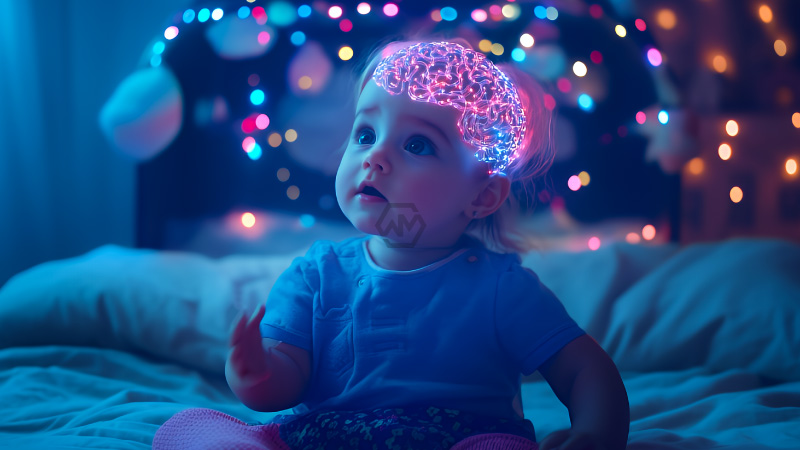- Babies form memories early, but they are not easily accessible later in life.
- The hippocampus plays a key role in encoding but is still developing.
- Babies excel in recognizing patterns but struggle with episodic recall.
Infants begin forming memories much earlier than we might assume. Research shows that even babies as young as four months old can recognize previously seen images, indicating memory formation.
Scientists believe that infants rely more on statistical learning, which helps them detect patterns rather than recall specific events. This difference in memory types explains why babies quickly adapt to routines but do not remember individual experiences from their early years.
The Science Behind Infant Memory and Forgetting
Babies’ brains actively encode information, but their ability to retain episodic memories remains weak due to the ongoing development of the hippocampus. While they recognize patterns and recall familiar stimuli, they do not store personal experiences in a way that allows for long-term recollection. This is why most people cannot remember events before the age of three or four.
Research suggests that memories formed in infancy might not disappear entirely but become inaccessible over time. Some theories propose that these early memories are either overwritten by new experiences or stored in a way that our mature brain cannot retrieve them later in life.
Another factor influencing memory retention is language development. Since early memories are often encoded without language, retrieving them later becomes difficult as our brain starts relying more on verbal processing to recall events. This shift may contribute to why memories from infancy fade as we grow older.
The phenomenon of infantile amnesia also raises questions about how early-life experiences shape personality and behavior. Even though we may not consciously remember them, early interactions and stimuli likely play a role in cognitive and emotional development.
Although we forget our infancy, research confirms that babies do form memories. These early experiences shape learning and recognition, even if they remain inaccessible later.
“We do not remember days, we remember moments.” – Cesare Pavese



